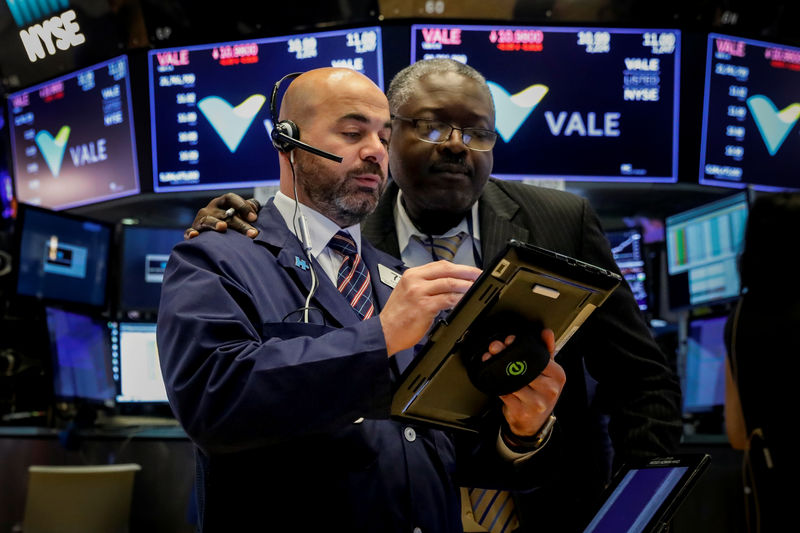By Lewis Krauskopf
NEW YORK (Reuters) - Wall Street and other major global stock markets posted solid gains on Friday and the U.S. dollar rose for a fifth straight day after data showed robust U.S. job growth.
The pan-European FTSEurofirst 300 index rose 0.74 percent, supported by news that Britain and the European Union had a breakthrough in Brexit negotiations.
U.S. jobs grew at a strong clip in November even though the wage gains that could fuel inflation remain moderate.
The U.S. jobs report followed encouraging economic data from China and Japan that buoyed Asian shares.
“We have a continuation of an economy that has been pretty firm and pretty balanced for the better part of the last several years and that’s been good for stock prices,” said Jason Ware, chief investment officer at Albion Financial Group in Salt Lake City.
The Dow Jones Industrial Average rose 117.68 points, or 0.49 percent, to 24,329.16, the S&P 500 gained 14.52 points, or 0.55 percent, to 2,651.5 and the Nasdaq Composite added 27.24 points, or 0.4 percent, to 6,840.08.
Technology stocks such as Microsoft (NASDAQ:MSFT) and Oracle (NYSE:ORCL) helped pace the advance, building on the rebound from the selloff in the sector earlier in the week.
“Tech stocks, while they will act up here and there because people are going to look at them and say, 'Wow, we have made a lot of money and we need to take some profits off the table,' at the end of the day, they keep returning back to it because the quality of that trade is still pretty good,” said Nathan Thooft, co-head of global asset allocation at Manulife Asset Management in Boston.
MSCI's gauge of stocks across the globe gained 0.57 percent.
Investors are continuing to watch a U.S. tax bill moving through Congress that will slash corporate levies, and may have been relieved that U.S. lawmakers late on Thursday agreed to a temporary funding bill that averted a government shutdown.
U.S. President Donald Trump on Friday signed the legislation to fund the federal government for two weeks.
In Europe, the banks index jumped 2.2 percent after financial regulators reached a long-sought deal on Thursday to harmonize global banking rules.
The dollar rose against the euro and yen in choppy trading after the U.S. jobs data, but gains were capped by wages data that analysts said were disappointing.
The dollar index rose 0.12 percent, with the euro down 0.06 percent to $1.1764.
The U.S. Federal Reserve is widely expected to raise interest rates at its Dec. 12-13 policy meeting, but Friday's jobs report could shape debate on monetary policy next year.
"The lack of wage pressure will not alter the Fed's rate hike aspiration in the coming meeting, but will certainly be a major discussion point for the new Fed chairman in 2018," said Marvin Loh, senior global market strategist at BNY Mellon in Boston.
U.S. Treasury yields were little changed after the closely watched jobs report.
Benchmark 10-year notes last fell 1/32 in price to yield 2.3778 percent, from 2.376 percent late on Thursday.
Oil prices rose, helped by Chinese crude demand and threats of a strike in Africa's largest oil exporter.
U.S. crude settled at $57.36 a barrel, up 67 cents or 1.2 percent. Brent crude settled at $63.40 a barrel, up $1.20 or 1.9 percent.
Bitcoin lost almost a fifth of its value in 10 hours on Friday, having surged more than 40 percent in the preceding 48 hours, sparking fears the market may be heading for a price collapse.
Graphic - World FX rates in 2017: http://tmsnrt.rs/2egbfVh
Graphic - Global assets in 2017: http://tmsnrt.rs/2yaWht3
Graphic - Global market cap: http://reut.rs/2mcp7T1

Graphic - Emerging markets in 2017: http://tmsnrt.rs/2ihRugV